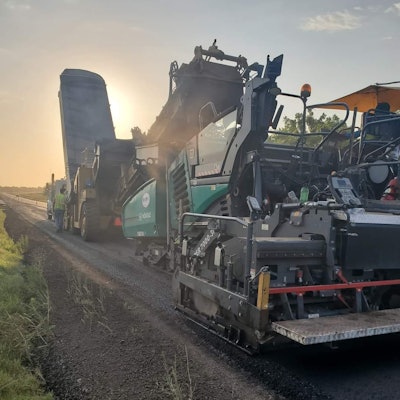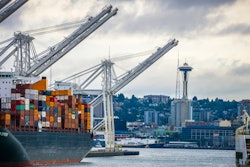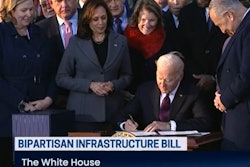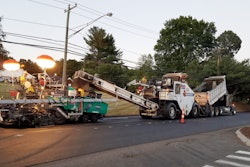
When President Joe Biden announced his plan to rebuild our nation's crumbling infrastructure in February, he said that China will “eat our lunch” if America doesn’t “step up” its infrastructure spending.
China has been investing heavily in its infrastructure, pouring money into high-speed rail, metro systems, apartment buildings, electricity grids and mobile networks. On the other hand, the World Economic Forum’s 2019 Global Competitiveness Report ranked the US 13th in a broad measure of infrastructure quality, down from fifth place in 2002.
"We just have to step up," Biden said. "How do we begin this? I laid out what I think we should be doing."
Fast forward 11 months and we have a signed infrastructure bill that will dedicate $1.2 trillion in spending over five years to help rebuild our crumbling network of roads, bridges and more.
This week, former U.S. Transportation Secretary Elaine Chao discussed the importance of the bill. She says there is good and bad in the legislation but more needs to be done to help move our country out of the uncertain state it is in.
One Federal Decision for More Projects, Faster
Chao said one great thing to come out of the bill was the of the "One Federal Decision" that reduces the regulatory permitting process for projects.
"This will reduce the regulatory permitting process down from seven to 17 years to build a new road or bridge down to hopefully about two years," she says. "All of these agencies involved in building complex projects should be looking to streamline processes to bring construction projects forward faster and ensure more construction projects can occur."
The One Federal Decision Act of 2021 provides statutory authority for the policy that requires federal agencies to coordinate environmental reviews and authorization decisions for major infrastructure projects. It also sets a goal for completing environmental reviews within two years.
Truckers Have Direct Impact on Supply Chain
The historic deficit of nearly 80,000 truck drivers in the U.S. – a 30% increase since the pandemic began – inadequate transportation infrastructure and other factors, including overwhelmed West Coast U.S. ports and shutdowns at overseas ports, are adversely affecting our supply chain. This is all harmful to American consumers and threatens the U.S. economy.
"From gas prices to grocery bills, global supply chain disruption and domestic labor shortages continue to ripple across America," Chao says. "Yet the the labor participation rate is 61%, which is very, very low. It's a workers market and they are in the driver seat."
Commercial trucking operators are championing initiatives to both retain drivers and recruit new ones, including increased compensation packages. Per a recent American Trucking Association report, the industry is raising pay at five times the historic average. And for its part, the federal government must approach regulation in this space with equal parts precision and prudence.
Chao says modernizing existing regulations for America’s truckers allows professional drivers to have more freedom and latitude in their driving schedules.
"The truckers who help power our economy need less red tape and bureaucracy to ease the supply chain obstacles," she says. "Parallel to progress on the bipartisan infrastructure bill, policymakers should also now support truckers with resolve rather than saddling them with harmful regulations to help America emerge from this crisis."




















